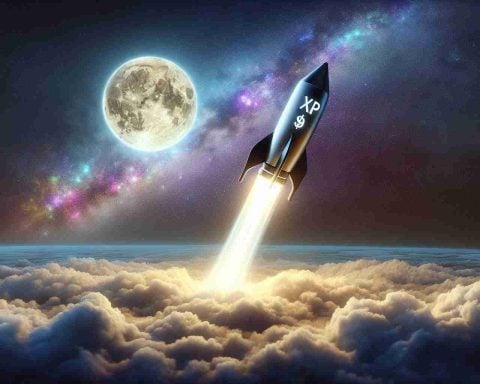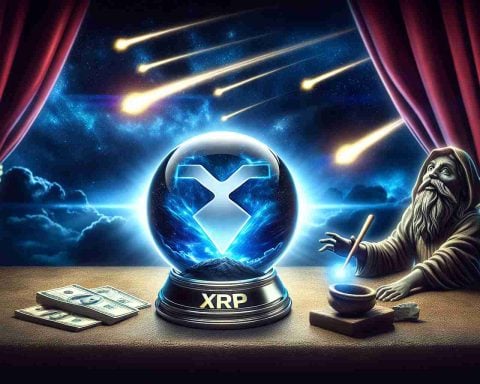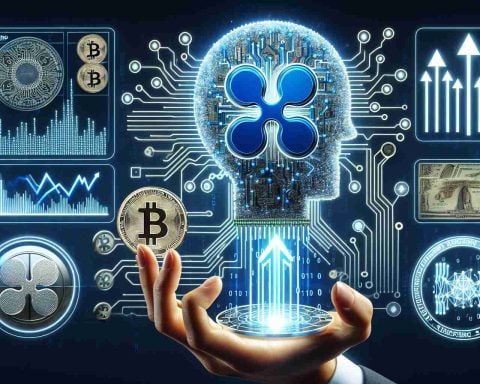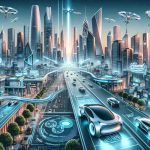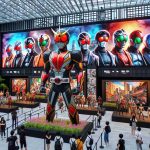- Tesla faces challenges with declining car sales and reduced profits, despite recent share price increases.
- Elon Musk envisions a future beyond traditional car manufacturing, focusing on robotics and artificial intelligence.
- Investors are intrigued by Musk’s ambitious promises of self-driving taxis and humanoid robots, but skepticism remains.
- Recent Tesla model releases and Musk’s political actions may be alienating to some of Tesla’s customer base.
- There’s a tension between Musk’s grand vision and the need to maintain customer loyalty and trust.
- The future of Tesla is seen as potentially transformative but carries significant risks tied to execution and market acceptance.
Beneath the glittering facade of his futuristic vision, Elon Musk finds himself in a peculiar battle—one that teeters between radical innovation and traditional reliance. As Tesla’s stock continues its rollercoaster ride, buoyed by a recent uptick in shares, the company confronts a sobering truth: car sales have dipped, marking a decline unseen in a decade. Profits, too, aren’t what they used to be.
Amid this labyrinth of numbers and projections, Musk remains unfazed, radiating confidence about Tesla’s future. His rhetoric orbits lofty goals of robotics and artificial intelligence, leaving investors to ponder dreams of self-driving taxis and humanoid robots. It’s a vision painted with bold strokes, poised to transcend traditional car manufacturing—if only belief aligns with execution.
However, a backdrop of skepticism lurks. While Musk’s political maneuvers might garner attention, they’re potentially alienating his core clientele. Tesla’s recent debuts, including the updated Model Y, attract derision from critics who see Musk’s gestures and rhetoric as a liability rather than an asset.
A paradox emerges: can Musk’s visionary swagger rewrite the rules, or will it roil the very customer base that turbocharged Tesla’s ascent? With an eye on his promised robotaxi revolution, Musk’s dreams intersect with political influence, potentially smoothing his path to reshaping the future of transportation.
Amidst volatile politics and consumer sentiment, the clear takeaway aligns with the dual nature of Tesla’s trajectory—it’s not solely about the cars anymore, but the audacious sweep of transforming Tesla into something grander. As Musk dreams big, his words resonate, captivating a world where the line between aspiration and reality is razor-thin, and that gamble on the future could pay immeasurable dividends—or plunge into the depths of doubt.
Tesla’s Tightrope: Can Visionary Dreams Survive Market Realities?
Elon Musk’s bold vision for Tesla transcends traditional car manufacturing, pivoting towards cutting-edge robotics and artificial intelligence. However, a recent downturn in Tesla’s car sales and profits has created a tense atmosphere around the company, especially as it embraces the futuristic aspirations of self-driving technology and humanoid robots. Let’s delve into the additional context and potential impacts of Tesla’s current trajectory.
The Financial Landscape
Recent reports indicate that Tesla’s car sales have experienced a decline, which has not occurred for over a decade. This has raised questions about the sustainability of Tesla’s operating model, especially given the competitive nature of the electric vehicle (EV) market. Although Tesla’s stock prices have seen some rebound, the company’s financial health may be contingent on both market expansion and technological breakthroughs to recapture growth.
Strategic Shifts and Technological Ambitions
Tesla’s focus on artificial intelligence (AI) and robotics speaks to Musk’s broader ambitions of revolutionizing the transportation industry. The concept of autonomous vehicles, or self-driving taxi networks, has been touted as a future hallmark for Tesla. However, substantial challenges remain in regulatory approvals, technological reliability, and public trust in autonomous technologies.
Here Are Some Critical Questions:
– How feasible is Tesla’s vision for a robotaxi network? While Musk has consistently promoted autonomous driving technology, its widespread deployment still requires overcoming regulatory, technical, and societal barriers.
– What implications do Musk’s political actions have on Tesla’s brand? Musk’s engagements in political arenas have potential consequences, either enhancing or alienating Tesla’s customer base, especially those who value the company’s commitment to sustainable transportation.
– Is Tesla’s product lineup sufficiently diverse to capture varied consumer interests? The ongoing development of models like the Tesla Cybertruck and the revamped Roadster is essential as competition in the EV market intensifies. A diversified portfolio could attract broader consumer bases.
The Broader Impact and Future Considerations
Tesla’s evolution from an automotive company to a tech-driven entity aligns with a global shift towards AI and automation. This could significantly impact labor markets, regulatory norms, and urban planning as autonomous and robotic technologies become more integrated into daily life.
As Tesla navigates these transformative goals, the company’s success could catalyze advancements in numerous industries beyond transportation, potentially shaping the future of energy consumption, supply chain logistics, and urban mobility worldwide.
Relevant and Credible Sources
For further information on Tesla’s ambitions and challenges, visit the following websites:
– Official Tesla
– Bloomberg
– Reuters
By aligning visionary ideals with market realities, Tesla stands at a pivotal moment that could either affirm Musk’s legacy as an innovator or prompt a reevaluation of the true value of his audacious dreams.










